Environmental Management
Fundamental Approach
The Nittobo Group is aware of the importance of global environmental problems including climate change and resource depletion and seeks to create and maintain a better environment, a requirement for business continuity. Based on this, the Nittobo Behavior Program provides for voluntary, proactive engagement in responses to climate change, effective use of resources, reduction of harmful substance, preservation of biodiversity, and other environmental conservation initiatives. In accordance with the Nittobo Environmental Charter and Company-Wide Environmental Policy, we strive for continuous improvement of the environment.
Nittobo Environmental Charter
Guiding Principle
In all our corporate activities and business development efforts, we, the Nittobo Group, will contribute to handing down the irreplaceable global environment to the next generation and ensuring sustainable development by providing eco-conscious products and services and taking the needs of the environment into consideration in our activities.
Action Guidelines
1. Environmental protection
Aim at improving the environment continuously and coexisting with the local community by striving to reduce environmental impacts in a systematic way.
2. Environmentally conscious corporate activities
Take action in response to climate change, effectively use resources, reduce harmful substances, preserve biodiversity, and carry out other environmental conservation initiatives in all business domains in Japan and abroad.
3. Compliance with environmental policy and voluntary management
Comply with laws, regulations, other requirements, and principles, stipulate voluntary environmental policies, management standards, and action plans, and work toward achieving them.
4. Periodic audits
Conduct periodic environmental audits to verify the appropriateness of management standards and improve environmental and safety management to raise such standards.
5. Training and education
Provide all employees with thorough environmental and safety training, maintain their environmental and safety awareness at high levels, and strive to hand down the global environment to posterity.
Established on October 1, 1998
Revised on April 1, 2023
Company-Wide Environmental Policy
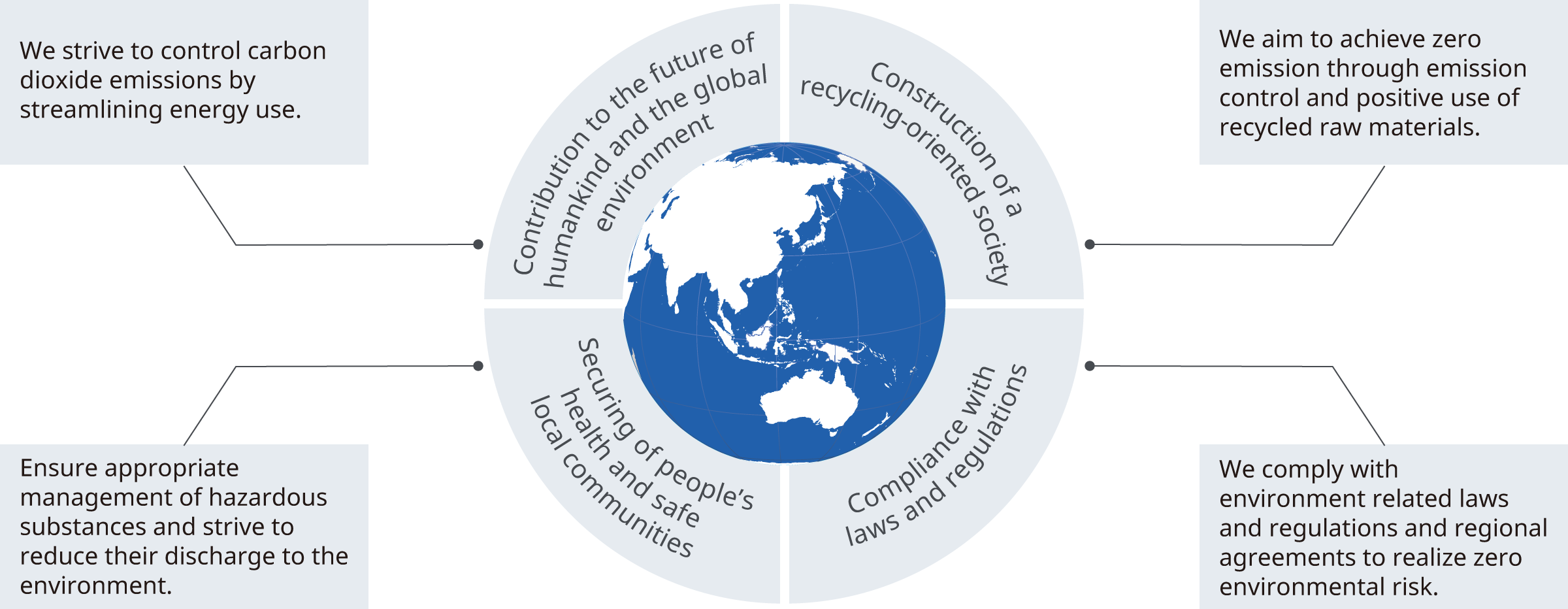
Environmental Management Organization
The Nittobo Group established the Central Environment Conservation Committee as its central supervisory and deliberative organ for environmental protection. The Committee consists of members appointed from business and administrative units and the labor union. Members who work in technology and production are also appointed from business units to participate in the Committee’s operation and discuss important environment-related matters.
In addition, we established the Group Environment Conservation Committee, whose membership includes environmental managers who are responsible for promoting environmental management through Office Environment Conservation Committees at individual business sites as well as technology and production personnel in order to share company-wide information and mutually raise awareness levels at business sites.
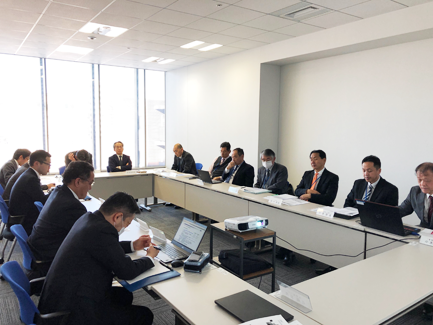
Central Environment Conservation Committee
ISO14001-certified Site
| Company/Site | Accreditation Date | |
|---|---|---|
| 1 | Nittobo Fukushima Factory, Fukushima No.2 Factory | 2001/1/27 |
| 2 | Fuji Fiber Glass Company, Ltd. | 2003/2/16 |
| 3 | Nitto Glasstex Co., Ltd. | 2003/1/17 |
| 4 | Paramount Glass Manufacturing Co., Ltd. Naganuma Factory | 2001/3/28 |
| 5 | Paramount Glass Manufacturing Co., Ltd. Suzuka Factory | 2010/3/3 |
| 6 | Paramount Glass Manufacturing Co., Ltd. Ebetsu Factory | 2003/3/31 |
| 7 | Nitto Glass Fiber Manufacturing Co., Ltd. | 2022/4/18 |
Environmental Audits
The Nittobo Group conducts periodic environmental audits at each of its business sites. Environmental audits are conducted from two perspectives—management audits and compliance audits (35 domestic environmental laws and regulations are classified into six categories for evaluation)—to verify the status of self-regulation and compliance with laws and regulations and to evaluate whether business site environmental management systems are functioning properly.
If problems are identified during audits, each business site is required to submit an improvement plan, and the plans are used as tasks for the future for additional environmental protection activities. Environmental audits are viewed as an effective tool for promoting and improving voluntary management, and the Nittobo Group will continue environmental audits on a Group-wide basis in the years to come.
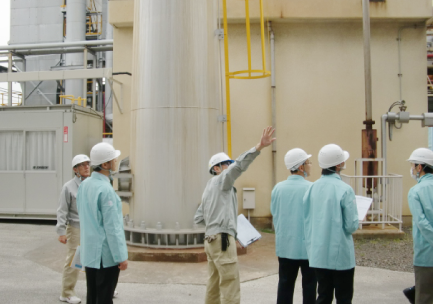
Environmental Audits 1
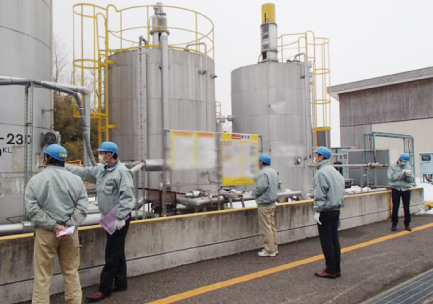
Environmental Audits 2
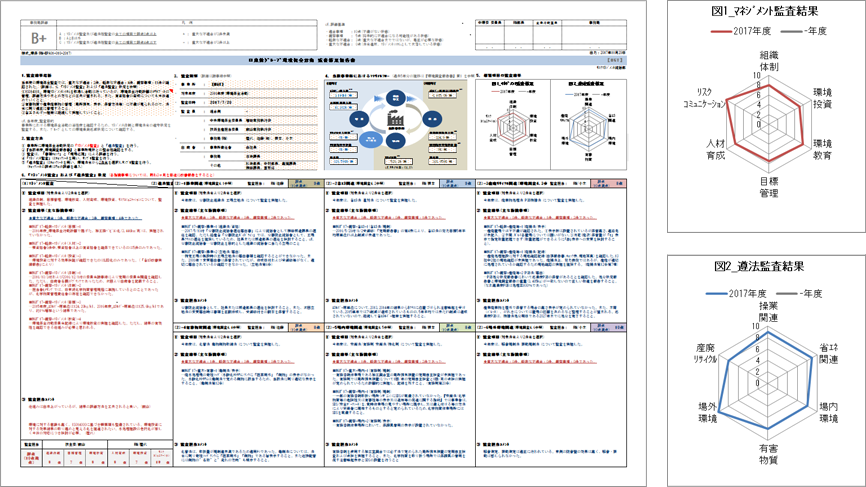
Sample of environmental audit report
